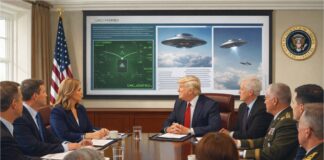
A Great Example of Free Trade
On the 9th of May 2000, Bill Clinton in his presidential speech was selling the merits of allowing China to join the World Trade Organization (WTO) to the American people.
“If you believe in a future of greater openness and freedom for the people of China, you ought to be for this agreement. If you believe in a future of greater prosperity for the American people you certainly should be for this agreement, if you believe in security and peace for Asia and the world you should be for this agreement. This is the right thing to do, it is a historic opportunity and a profound American responsibility.” Clinton went on to suggest the entry of China into the WTO would offer “a brighter future for American workers and American manufacturers. Economically this agreement is the equivalent of a one way street, it requires China to open its markets with a fifth of the world’s population, potentially the biggest markets in the world. For the first time China will agree to play by the open trading rules we do. It has never happened before, for the first time our companies will be able to sell and distribute products in China made by workers here in America.” (1)
If we look back at Clinton’s speech it becomes obvious who really benefited. The failure of governments to foresee any negative impacts of offshoring manufacturing and industry has resulted in a decimation of the middle and working class in many nations. While China has benefited significantly (economically) at least in the short term, other nations have seen their economies stripped of any meaningful industry. While most governments race to promote ‘free trade’ and the opening of foreign trade and investment, few understand the consequence this has on local economies.. or do they?
Hiding What is Really Going On
The “official unemployment rate” in the United States, as outlined by “Unemployment USA,” is promoted to the public between 5 and 6%. John Williams, an economic consultant who publishes “Shadow Statistics,” examines the data many mainstream media outlets fail to update or question. In a 2013 interview, Williams outlined that “the numbers are a matter of definition. If you interviewed those who are unemployed you would get a much higher rate than what the government puts out as its definition.” The headline unemployment figure is calculated by examining the civilian labor force and includes only people who are working or have looked for a job in the previous four weeks. “So if you have given up looking for a job because there is no longer any point then you are not included in the headline unemployment figures. Given the way the government’s headline unemployment rate is calculated, it can never reach 14%. This is because when the economy gets really bad (like now), unemployed workers get discouraged and give up looking for jobs. This causes the civilian labor force to decline, faster than total employment.” Williams points out that back in 1994 discouraged workers were counted. If you hadn’t looked for work in the last two years but you were still ready and able to take a job the government counted you, but it doesn’t now. Williams estimates that if the calculation was the same or similar to what it was back in 1994, the unemployment rate would be more in line with 23%. (2)
The Trans Pacific Partnership – A Corporate Takeover
There is currently plenty of talk about the Trans Pacific Partnership agreement secretly being negotiated. Firstly, if this is such as good deal for everyone, why isn’t there transparency and open debate, and why is this deal being done in private? Doesn’t seem that democratic, does it? Yet it seems the words liberty, democracy, and freedom are overused as catch cries from our political masters, who simply mouth these words to appease the masses. Secondly, I don’t know about you, but when I hear the word “fast track” it conjures up thoughts of missing a few steps or doing things a bit half arsed…
The current “Trans Pacific Partnership” deal, which is being negotiated secretively between Australia, Brunei, Canada, Chile, Japan, Malaysia, Mexico, New Zealand, Peru, Singapore, the United States, and Vietnam, may well be another effort to decimate the workforce in favour of multinational profits. The “Public Citizen” organization certainly thinks so. It believes the latest TPP is an effort to offshore American jobs and increase income inequality, increase the cost of medicines, sneak in SOPA-like threats to internet freedom, empower corporations to attack our environmental and health safeguards, expose the U.S. to unsafe food and products, and roll back Wall Street reforms. Sounds like one massive corporate bail out doesn’t it!
To take it one step further, the TPP would even elevate individual foreign firms to equal status with sovereign nations. This would empower them to privately enforce new rights and privileges, provided by the pact, by dragging governments to foreign tribunals to challenge public interest policies that they claim frustrate their expectations. The tribunals would be authorized to order taxpayer compensation to the foreign corporations for the “expected future profits” they surmise would be inhibited by the challenged policies. (3)
Stacking The Deck
Generally free trade agreements such as this have little to do with trade, they are about changing and stacking the deck in favour of those who will benefit. From the information available it appears that the TPP will give more power to corporations to attack and litigate against foreign nations. The late Albert Allen Bartlett, the well-respected Professor of physics at the University of Colorado (Boulder) who spoke extensively about the energy sector, suggested that “one of the principle motivations behind the U.S support for these trade agreements is to allow the U.S get their hands on resources before these resources get developed and countries want to use them for themselves.” (4) He may well be right!
The Investor-State Dispute Settlement (ISDS) section of the TPP would effectively give special rights to foreign investors included in the Trans Pacific Partnership (TPP). This would open up the flood gates from which foreign investors (large multinationals) could potentially sue governments if their investments were deemed to be affected by a change in a law or policy. National regulations in areas such as food labelling, workers rights, safety and environmental protection would be at risk of violation. To illustrate, I will use an example of a large multinational mining company who wants to explore and drill for oil and gas in a certain environmentally sensitive area in your country. Under the TPP agreement any restrictions which may be placed upon the company in regard to exploration and drilling may be cause for potential litigation if the “interests of the conglomerate” could be affected. The national government of the particular country would have to either fight the litigation (tax payer funded of course) or simply give in to the company and let them do whatever they like! In effect, any TPP deal would jeopardize national sovereignty and potentially wreak havoc on the environment.
Bring in Your Own Lawyers
These disputes would be heard by an international investment tribunal (more deck stacking) with no independent judges. There would be no precedents or appeals, so decisions could be inconsistent, yet could have the ability to undermine national laws. Some argue that The TPP is being driven by the U.S in an effort to further the interests of American corporations and American workers after seeing its industry and economy decimated by Chinese dominance over the last decades. It might be a way of embedding trade between these countries to ensure China does not become more economically dominant throughout the Pacific and Asia. However, I can’t help but be reminded of the words of the prominent economist and professor at the School of Public Policy, Herman Daly, who argues that “globalisation has been a policy choice of the elites, not of the average citizen.” The mantra of “we live in a globalised economy and have no choice but to compete in the global growth race” has misled countries into supporting free capital mobility and global integration. “Globalisation” (national disintegration) was an actively pursued policy, not an inertial force of nature. It was done to increase the power and growth of transnational corporations by moving them out from under the authority of nation states and into a non-existent “global community.” (5)
Regardless of the agendas being pushed, there are three important factors at play when it comes to this deal, all of which further undermine society. These are holding us back from true progress, not the kind multinationals seek in the exploitation of resources, people and the environment, these are the erosion of democracy, integrity, and national sovereignty. These are up for grabs… not just some dodgy agreement…
Article compiled by Andrew Martin, editor of onenesspublishing and author of One ~ A Survival Guide for the Future… and Rethink…Your world, Your future.
Disclaimer: We at Prepare for Change (PFC) bring you information that is not offered by the mainstream news, and therefore may seem controversial. The opinions, views, statements, and/or information we present are not necessarily promoted, endorsed, espoused, or agreed to by Prepare for Change, its leadership Council, members, those who work with PFC, or those who read its content. However, they are hopefully provocative. Please use discernment! Use logical thinking, your own intuition and your own connection with Source, Spirit and Natural Laws to help you determine what is true and what is not. By sharing information and seeding dialogue, it is our goal to raise consciousness and awareness of higher truths to free us from enslavement of the matrix in this material realm.
 EN
EN


























